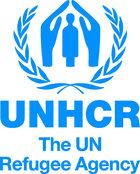
UNHCR published a new report, Navigating health and well-being challenges for refugees from Ukraine. It compares key indicator data on 10 refugee-hosting countries - Bulgaria, Czechia, Estonia, Hungary, Latvia, Lithuania, Poland, Republic of Moldova, Romania, and Slovakia - with data collected in 2023. 8 720 households with 19 803 individual household members were involved in the research.
Key findings from the regional analysis include:
Health as a priority need: Access to healthcare remains a top-3 priority for 33% of households, consistent with 2023 findings (34%), and was almost an equal priority for both women and men. It was found to be a greater priority for households with members who have disabilities (56%) or chronic illnesses (45%), compared to 21% for households without these vulnerabilities.
Access to care: In the 30 days prior to the survey, 83% of individuals requiring healthcare were able to access services: a slight decrease from 88% in 2023. Unmet healthcare needs were notably higher among people with chronic illnesses (21%) and disabilities (18%) compared to those without these vulnerabilities (12%). Refugees’ ability to navigate host-country health systems was found to have improved, reflected by a decrease in challenges when securing appointments, which fell from 38% in 2023—when it was the top barrier—to 21% in 2024, aided by information dissemination and awareness efforts from health authorities and RRP partners.
Health expenditures continued to account for a significant portion of household budgets, averaging 8% of total expenditures—roughly the same (9%) as in 2023. The health expenditure share was higher for households with chronically ill members, who spent 12% on average, compared to 5% for those without. Similarly, households with a member with a disability allocated 15% of their expenditures to health, nearly double the 8% spent by other households.
Barriers to accessing sexual and reproductive health (SRH) services affected 5% of women and girls, with long wait times (33%) and financial barriers such as transport costs (23%) and clinic fees (19%) being named as the most common obstacles.
Vaccination coverage among Ukrainian refugees remains low. Using measles as a proxy for childhood vaccinations, measles vaccination coverage for children stood at 83%, similar to 84% in 2023, falling short of the 95% target.
Mental health and psychosocial needs are a significant and growing concern for Ukrainian refugees, with 23% of individuals reporting mental health and psychosocial problems that affect their daily functioning and 36% of households reporting at least one member affected. This represents a rise from 19% of individuals and 30% of households in 2023. Women, especially those aged 35 and older, consistently reported higher levels of mental health problems than men. Individuals with chronic illnesses or disabilities reported higher MHPSS needs, with 41% of those with chronic conditions and 51% of those with disabilities experiencing mental health challenges.
Access to mental health and psychosocial support: Among individuals reporting mental health or psychosocial problems affecting daily functioning, less than half (46%) sought support, highlighting the need to address barriers such as poor awareness about and confidence in services, stigma, and language and availability constraints. Experiences accessing support differed among women and men, with the latter seeking support less often.

Details
- Authors
- UNHCR
- Geographic area
- BulgariaCzech RepublicEstoniaHungaryLatviaLithuaniaOtherPolandRomaniaSlovakia
- Contributor type
- International organisation
- Original source
- Posted by
